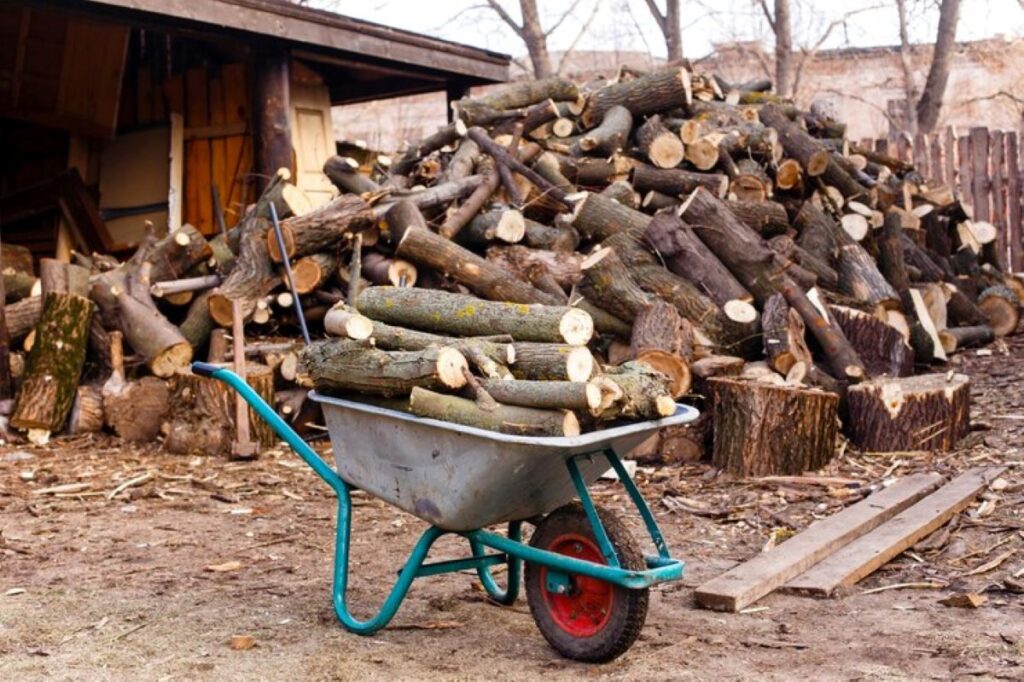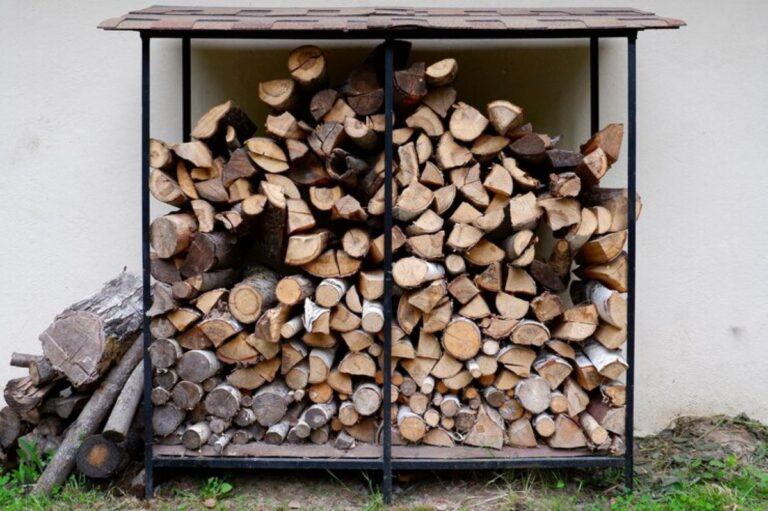Understanding Firewood Bags and Loose Firewood
When it comes to heating your home or creating the perfect ambiance during a cozy evening, the choice between firewood bags and loose firewood can significantly influence both your experience and your wallet. Understanding the nuances of each option is essential for making an informed decision.
The Basics of Firewood Bags
Firewood bags are pre-packaged bundles of firewood that are convenient and easy to handle. They typically contain a specific quantity of firewood, often ranging from 1 to 2 cubic feet. The wood is usually seasoned, meaning it’s dried and ready for burning, which enhances its efficiency as a heat source.
One of the major benefits of firewood bags is their portability. You can easily transport them from the store to your home, and they can be stacked neatly. Additionally, because they are often sealed, they can help protect the wood from moisture and pests, ensuring that you’re getting the best quality possible. Furthermore, many firewood bags are designed with easy-to-carry handles, making them a practical choice for those who may not have a vehicle large enough to transport bulk firewood. This convenience can be particularly appealing for urban dwellers or those with limited storage space.
What is Loose Firewood?
Loose firewood, on the other hand, refers to firewood bought in bulk—often measured by the cord or half-cord. This option gives homeowners the flexibility to purchase exactly how much they need and can be more economical in the long run, especially for those who use firewood regularly.
Typically, loose firewood requires more effort regarding transportation and storage, as it needs to be stacked and covered to keep it dry. Unlike firewood bags, loose firewood can be made up of various types of wood, so homeowners may need to be more selective to ensure they receive quality wood that suits their burning preferences. Different types of wood burn at varying rates and produce different heat outputs; for instance, hardwoods like oak and hickory provide longer-lasting heat, while softwoods like pine ignite quickly and are great for kindling. This variety allows for a tailored burning experience, depending on the homeowner’s specific needs and the desired ambiance.
Factors Influencing Cost-Effectiveness
Determining which option is more cost-effective depends on several factors that vary from one homeowner to another. Below are some important considerations that play a critical role in this decision.
Quantity and Quality Considerations
The quantity of firewood you require will significantly impact your overall cost. For occasional use, firewood bags may be the more practical choice, as they allow you to buy a specific amount without needing to worry about what to do with the leftover wood.
For regular users, loose firewood can offer substantial savings. Bulk purchases typically reduce the cost per unit, making it easier to stock up for the entire winter or camping season. However, it is essential to ensure that you’re purchasing high-quality, seasoned wood, as lower quality can lead to less efficient burning and more smoke. Seasoned wood, which has been dried for at least six months, not only burns hotter but also produces less creosote, reducing the risk of chimney fires. Therefore, investing time in sourcing reputable suppliers who provide certified seasoned wood can lead to long-term savings and a safer burning experience.
Storage and Transportation Costs
Another significant consideration is storage and transportation costs. Firewood bags are typically easier to handle, come with integrated handles for carrying, and can be compactly stored until needed. This can save you time and effort on delivery and stacking.
On the contrary, loose firewood creates a need for efficient storage solutions. You’ll require a designated area to stack the wood that is protected from rain and snow; otherwise, you run the risk of it becoming wet and unusable. Investing in a wood shed or tarp may be necessary, which can add to the initial cost. Additionally, consider the accessibility of your storage area; if you frequently need to access your firewood, a well-organized stack that is easy to reach can save you time and hassle. Furthermore, if you live in an area with harsh winters, ensuring your firewood is stored off the ground can help prevent moisture absorption and keep it in prime burning condition. The right storage solution not only preserves the quality of your firewood but also enhances the overall efficiency of your heating strategy.
The Pros and Cons of Firewood Bags

Firewood bags have their advantages and disadvantages. Understanding both can help you to weigh your options carefully.
Convenience and Efficiency
One of the main pros of firewood bags is their convenience. They are pre-packaged, making them easy to pick up and take home without additional fuss. If you’re looking for a straightforward solution for those rare evenings beside the fire, this can’t be understated.
Moreover, firewood bags are typically ready to burn, reducing the time and effort spent preparing the wood. This can be particularly vital for individuals who are new to using firewood or need quick access to it. For instance, if you’re hosting a spontaneous gathering or simply want to enjoy a cozy night in, grabbing a bag of seasoned firewood can save you from the hassle of chopping and stacking. The uniform size and shape of the logs in these bags also make them easier to handle and store, fitting neatly in your fireplace or outdoor fire pit.
Potential Drawbacks
However, firewood bags also come with potential drawbacks. The cost per unit can be significantly higher compared to buying in bulk. If you find yourself using firewood regularly, the higher price tag may lead to unnecessary expenditure. This can be particularly true for families or individuals who rely on firewood for heating during the colder months, where the expense could add up quickly.
Additionally, while they are convenient, their limited quantity may require more frequent trips to the store. In a colder climate, this can be inconvenient, especially during heavy snow or rain. Furthermore, the environmental impact of firewood bags should not be overlooked; many are made from plastic or other non-biodegradable materials, which can contribute to waste. Opting for firewood that is sustainably sourced and stored might be a better choice for eco-conscious consumers, even if it means sacrificing some convenience. Ultimately, weighing these factors can lead to a more informed decision about how best to meet your firewood needs.
The Advantages and Disadvantages of Loose Firewood
Loose firewood certainly has its own set of pros and cons that you should keep in mind when deciding which option suits you best.
Flexibility and Customization
One significant advantage of loose firewood is the flexibility it provides. You can select the type of wood that best fits your needs, whether that be hardwoods for long-lasting heat or softwoods for quick-start fires. This customization can lead to a more tailored experience based on how you plan to use the firewood.
Moreover, the ability to purchase in bulk can drastically reduce costs over time, especially for regular users. Many suppliers offer discounts for larger orders, making it a more economical solution.
Possible Challenges
Conversely, purchasing loose firewood can present challenges. The need for proper storage and moisture protection can be daunting, particularly for those with limited outdoor space. Additionally, it requires more effort in terms of physical handling, stacking, and maintaining the wood’s quality.
Without appropriate storage, loose wood can become a breeding ground for pests or be susceptible to the elements, which might render it unusable. Therefore, it will require a bit more work than simply grabbing a bag from the store.
Making the Right Choice for Your Needs
Ultimately, the decision between firewood bags and loose firewood will depend on your unique needs and circumstances.

Assessing Your Firewood Consumption
The first step is to assess how much firewood you use in a typical season. If you only have a fire a few weekends a year, firewood bags can offer the convenience you need. Conversely, if you rely heavily on firewood for heating, investing in bulk will likely save you money. Click here to get more about the cheapest places to buy cheap firewood near me.
Track your consumption patterns over time to determine what makes the most financial sense for you.
Considering Your Storage Options
Finally, evaluate your storage options carefully. If you have space and are willing to put in the work, loose firewood may be the ideal choice. However, if storage is limited, firewood bags represent a readily manageable solution.
In conclusion, whether you choose firewood bags or loose firewood, it’s essential to understand the implications of your choice to ensure you enjoy a warm and cozy setting all season long!

